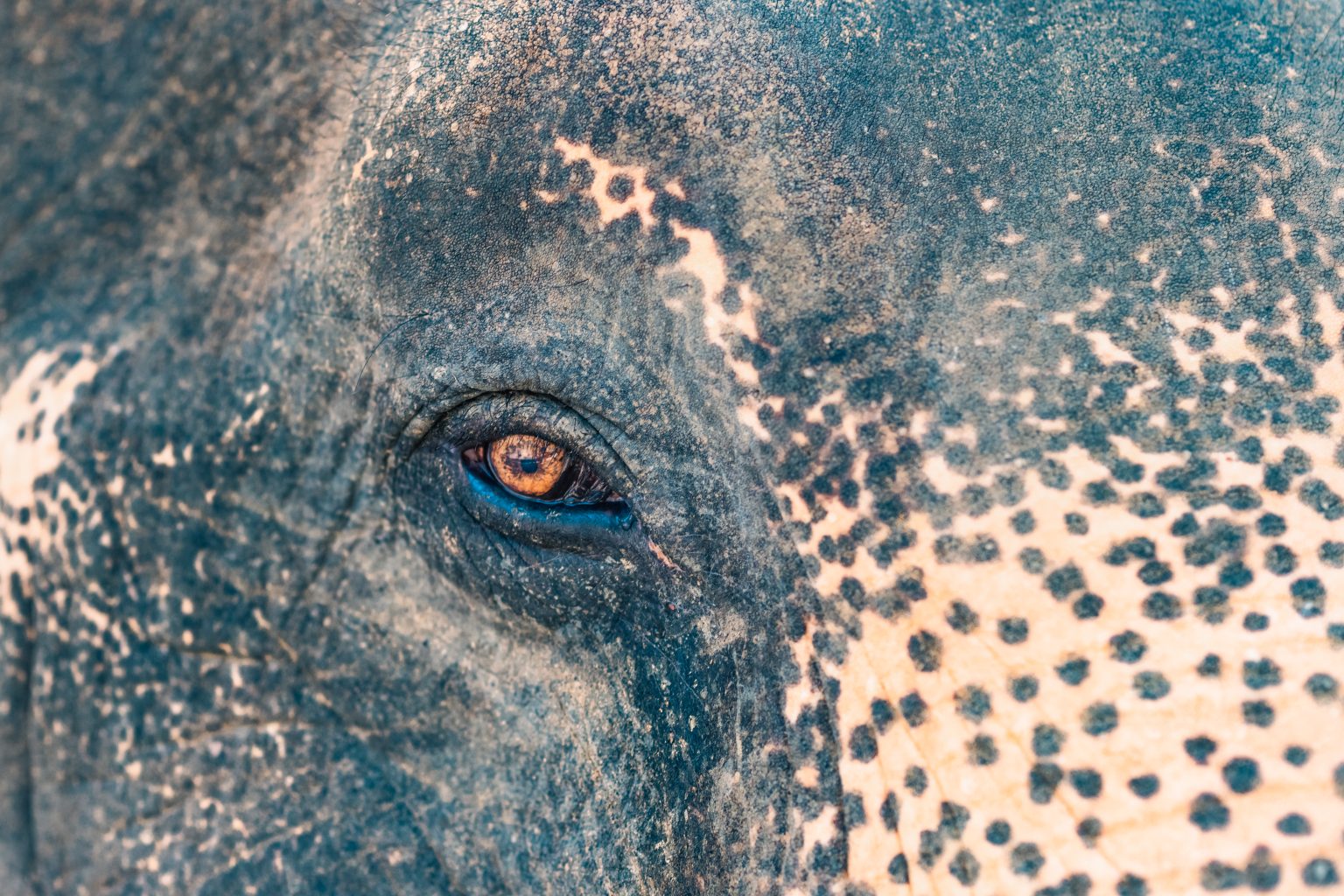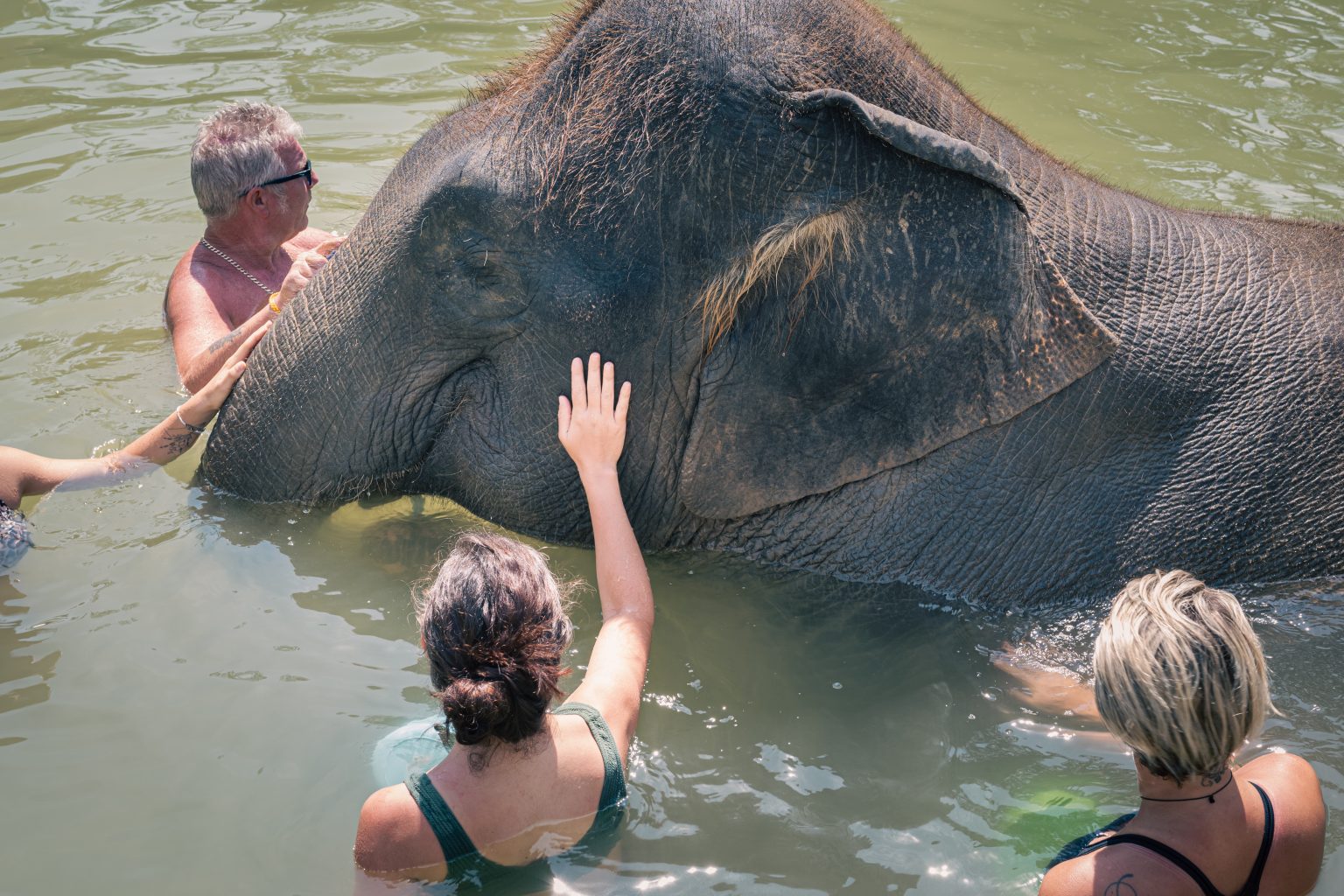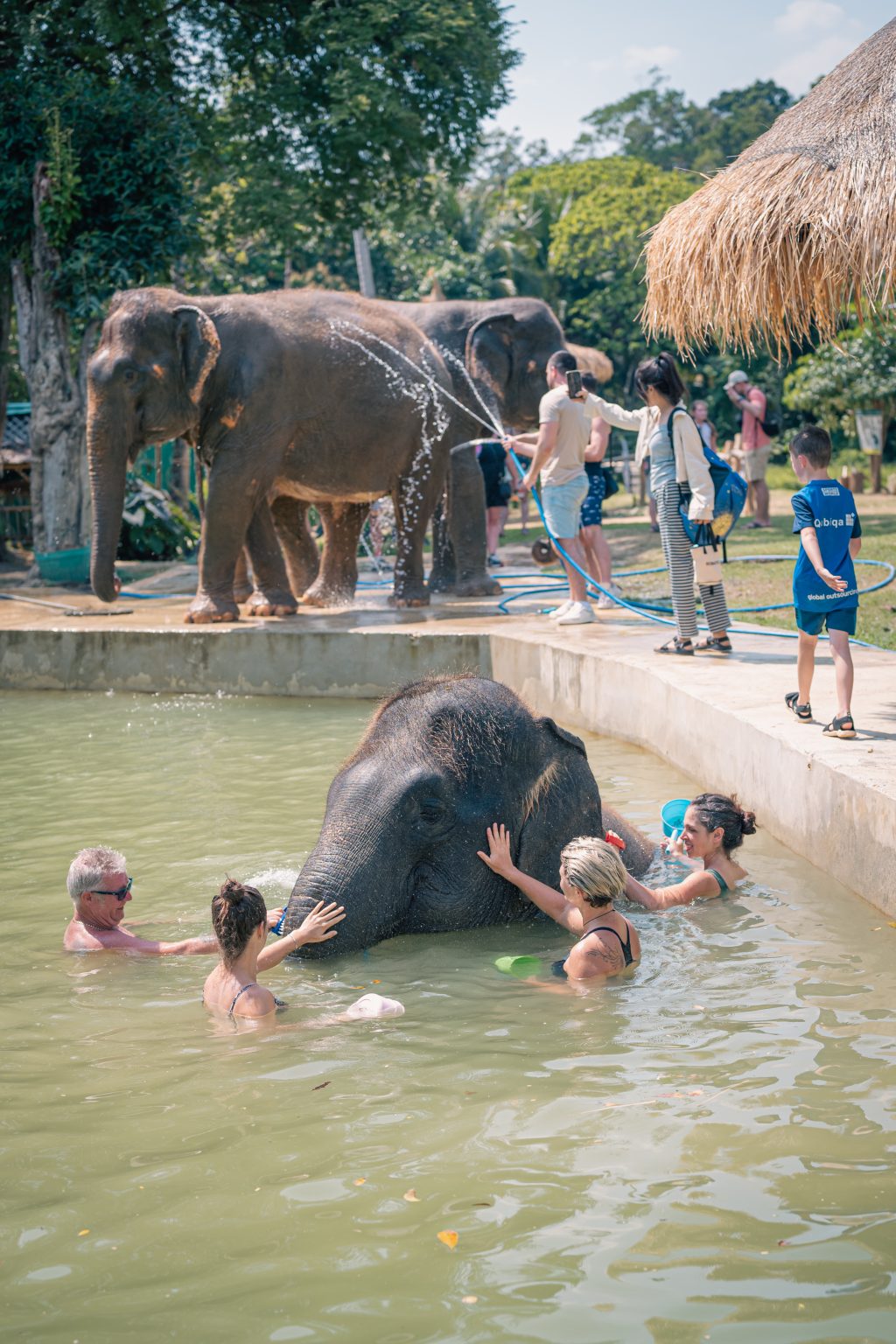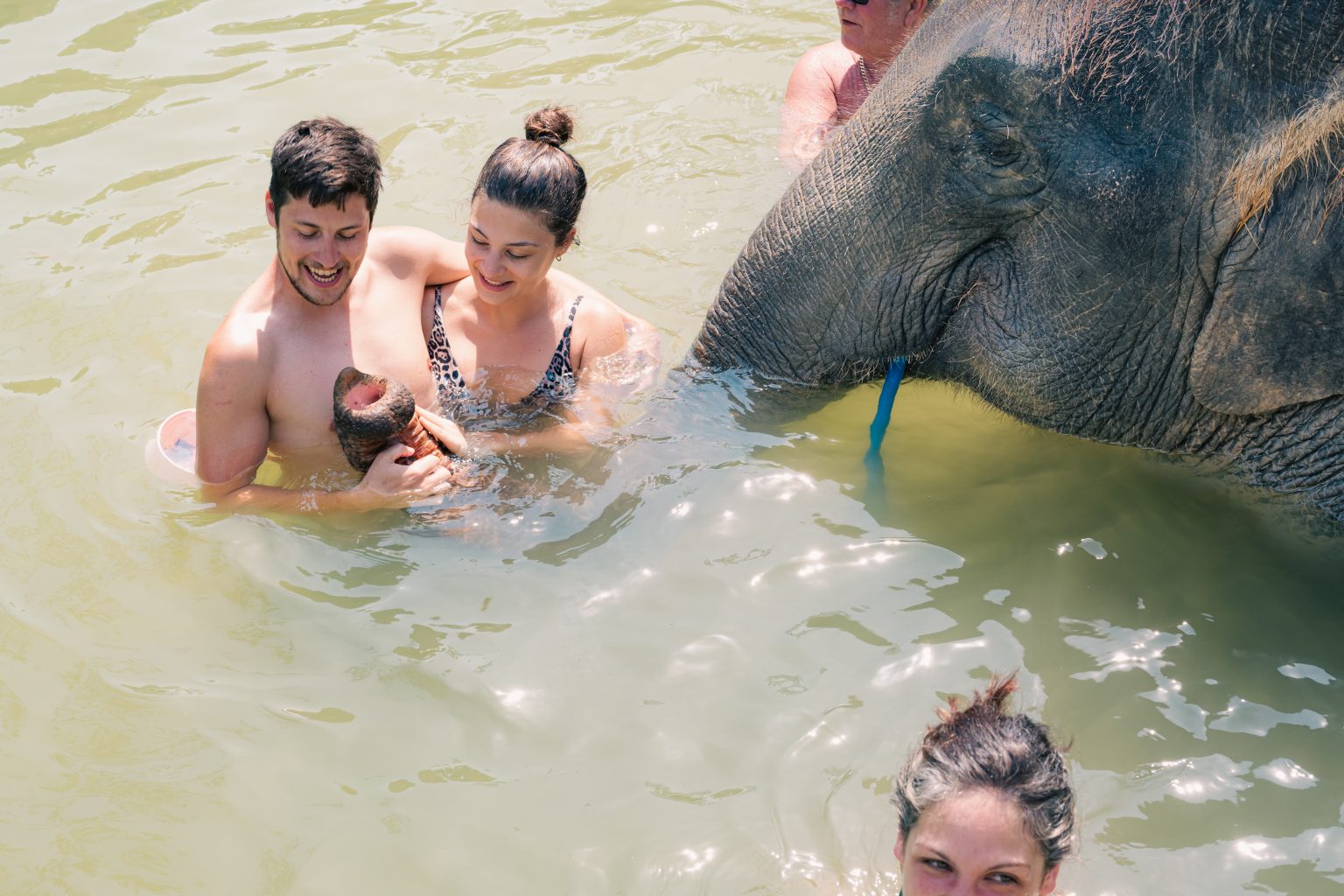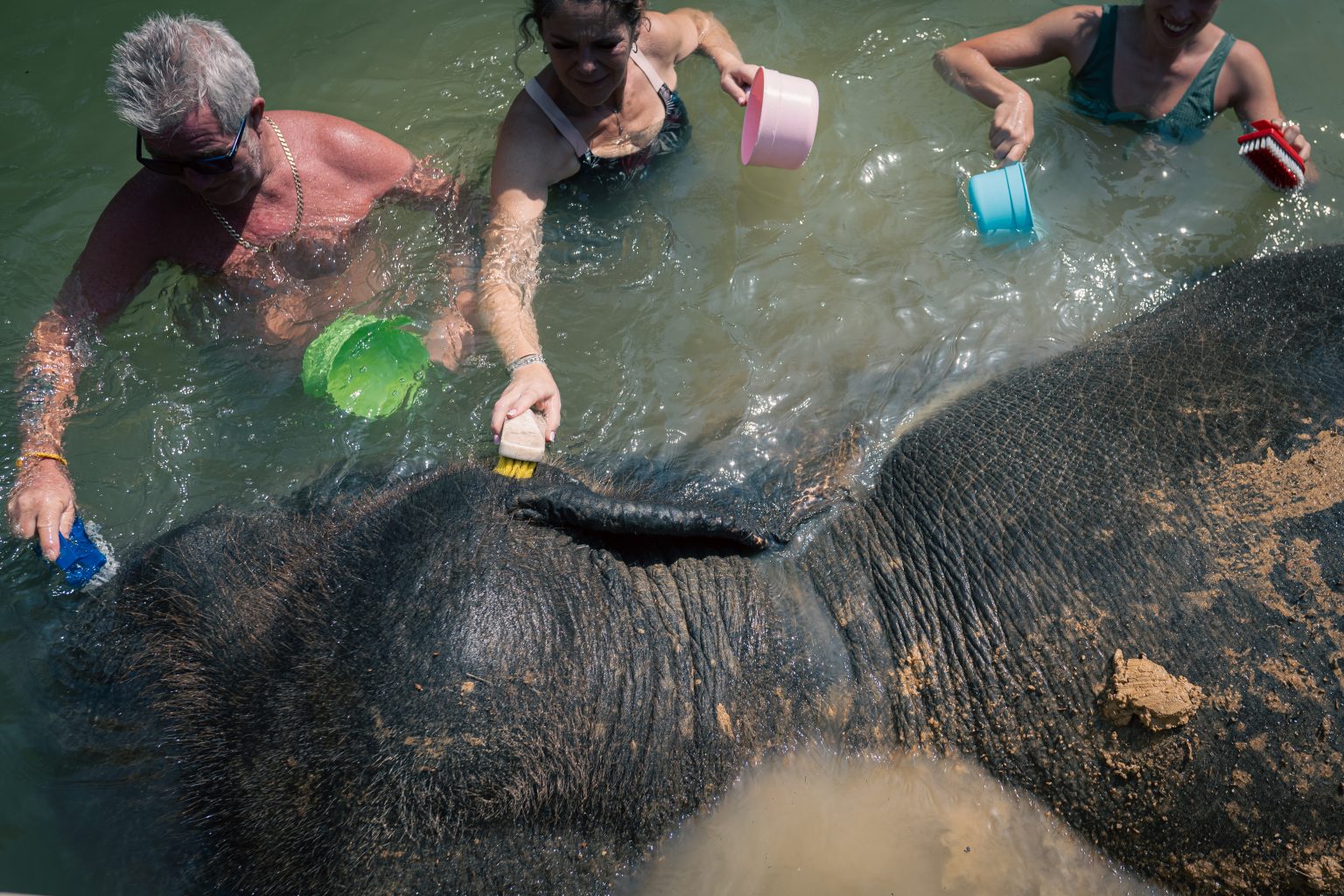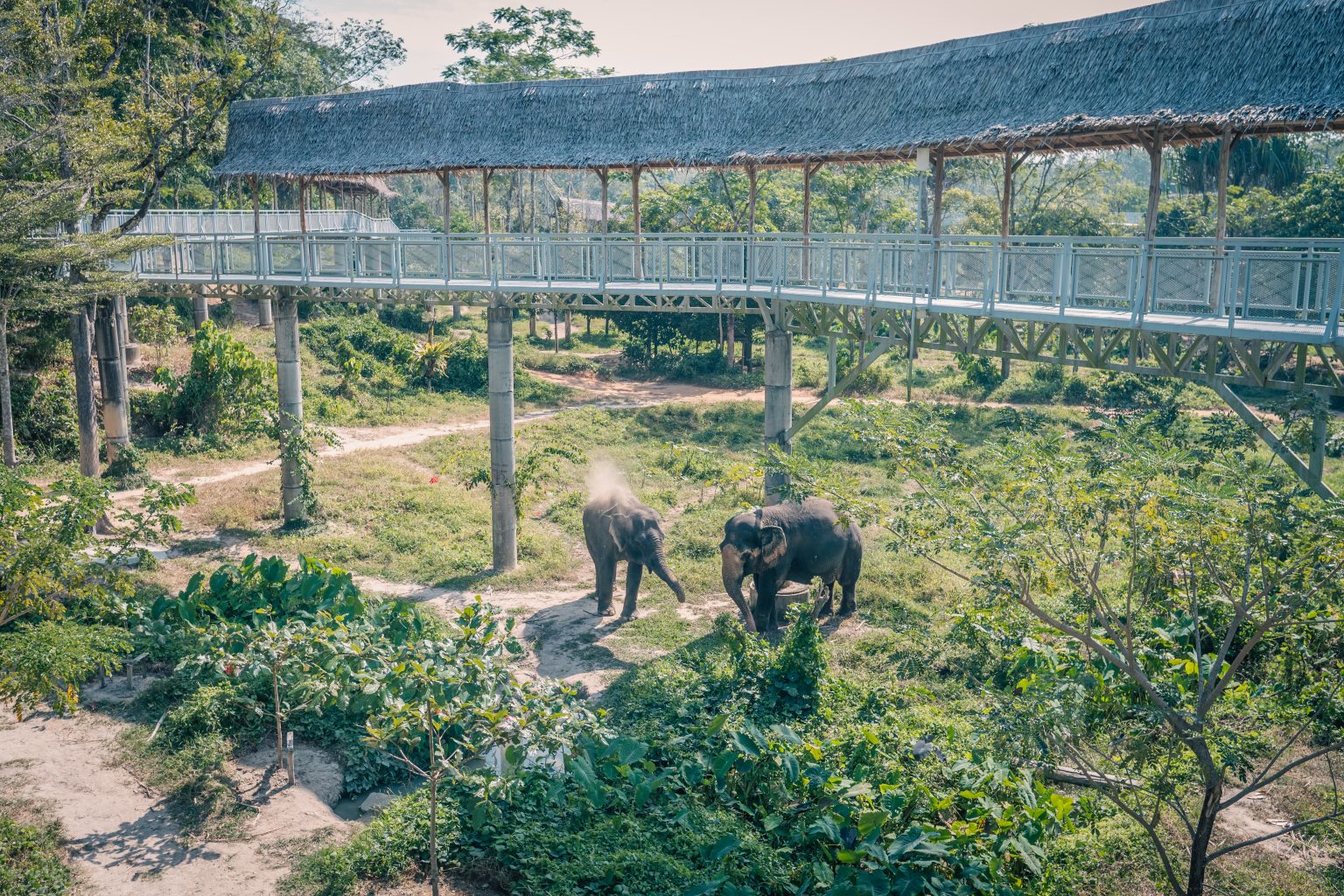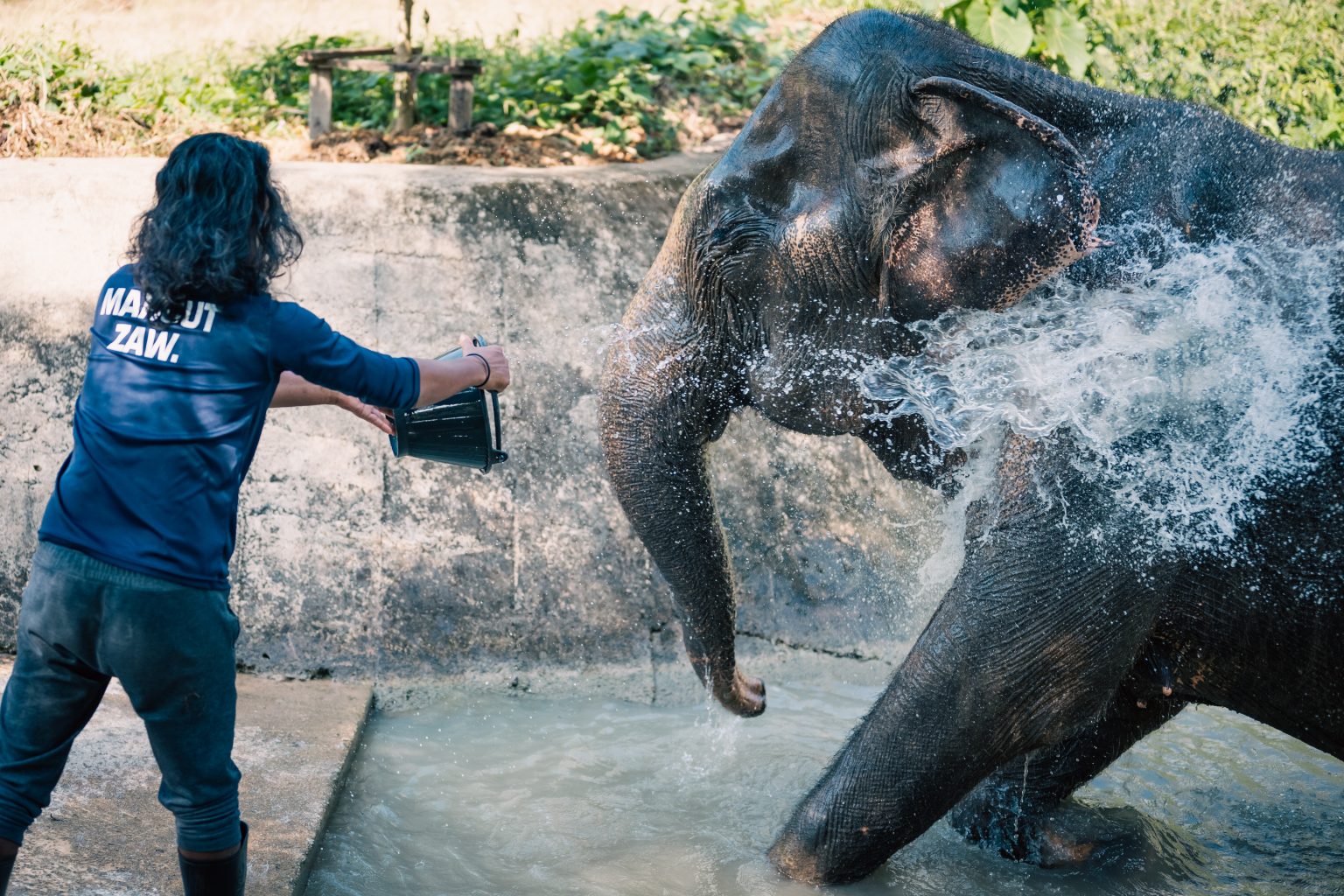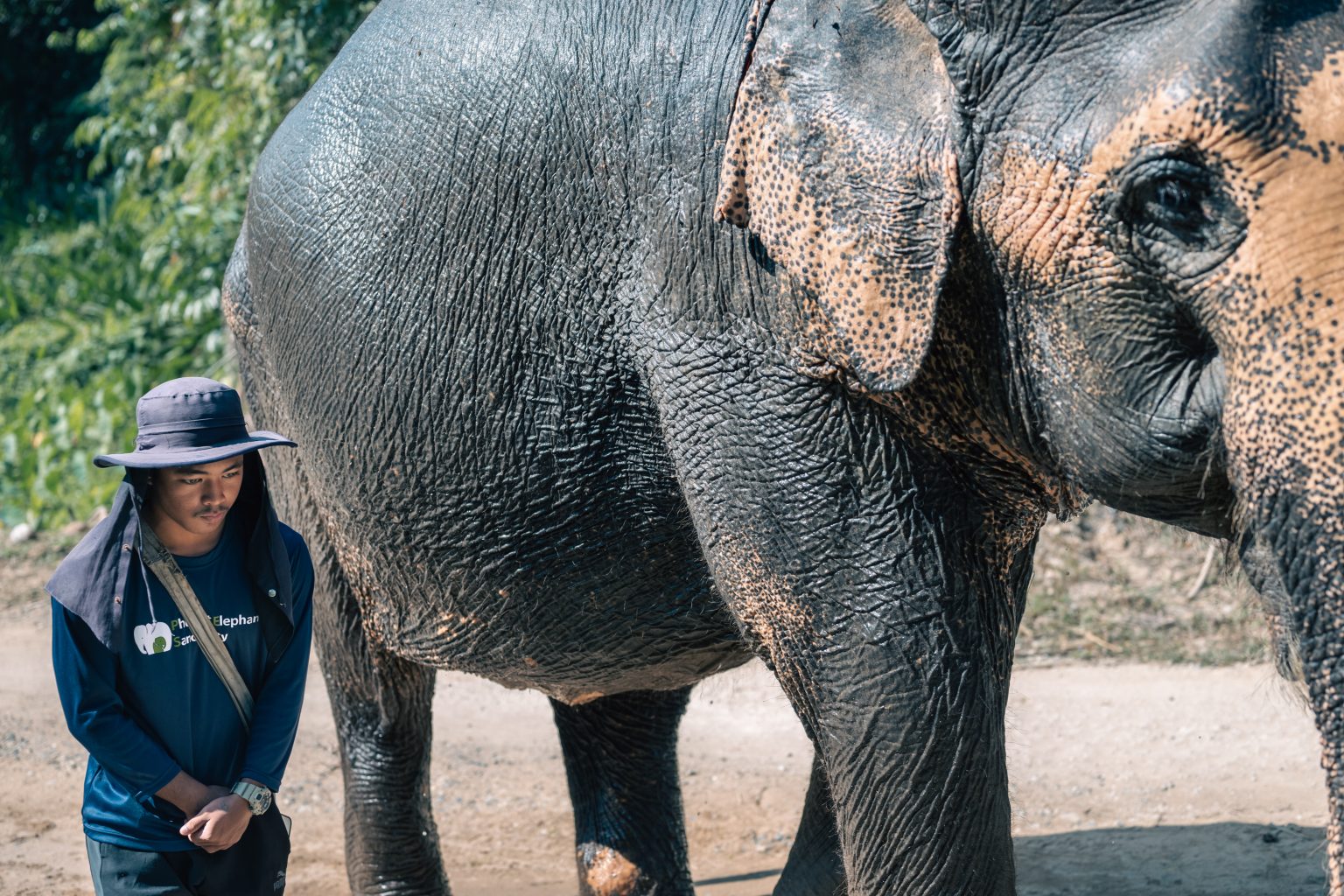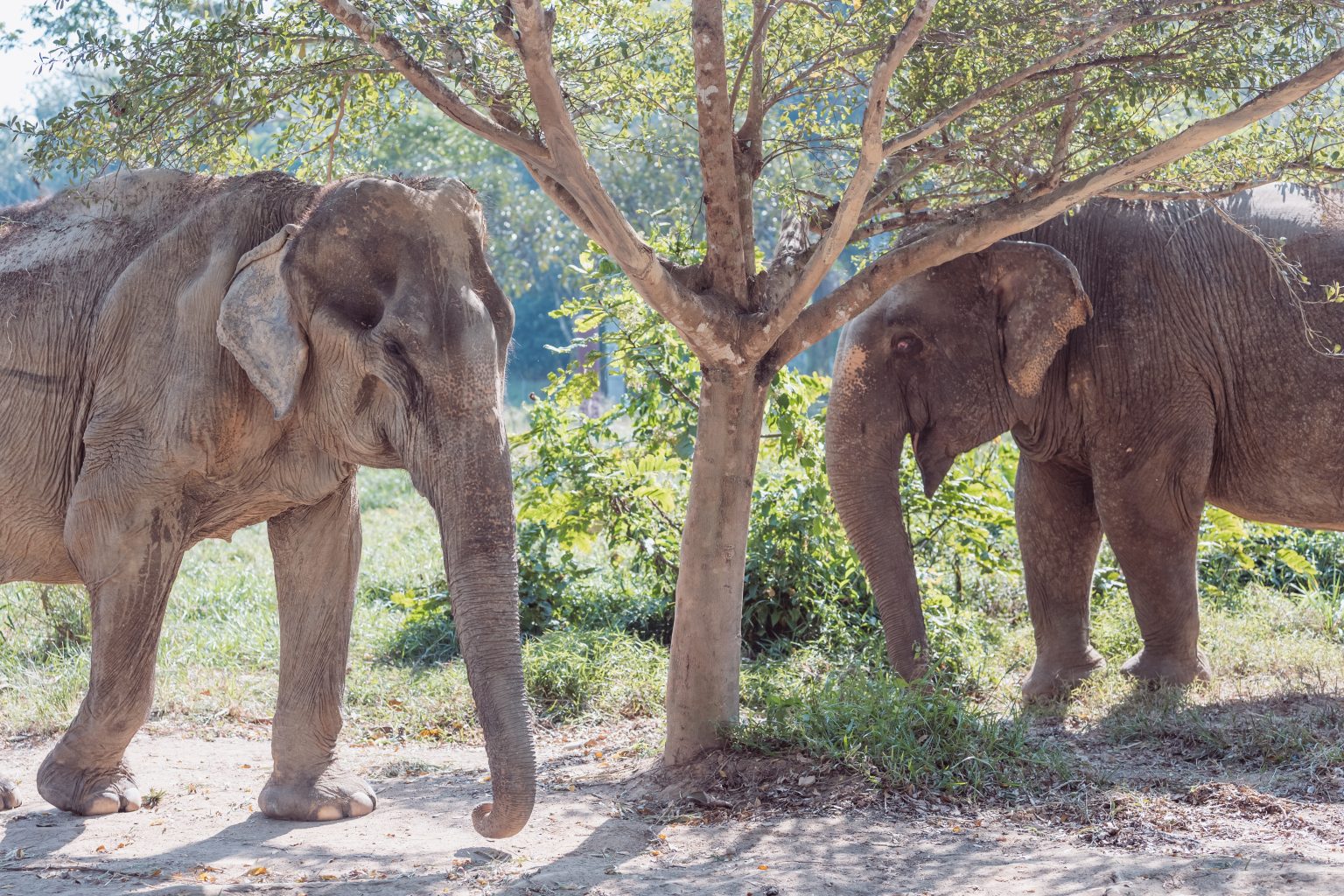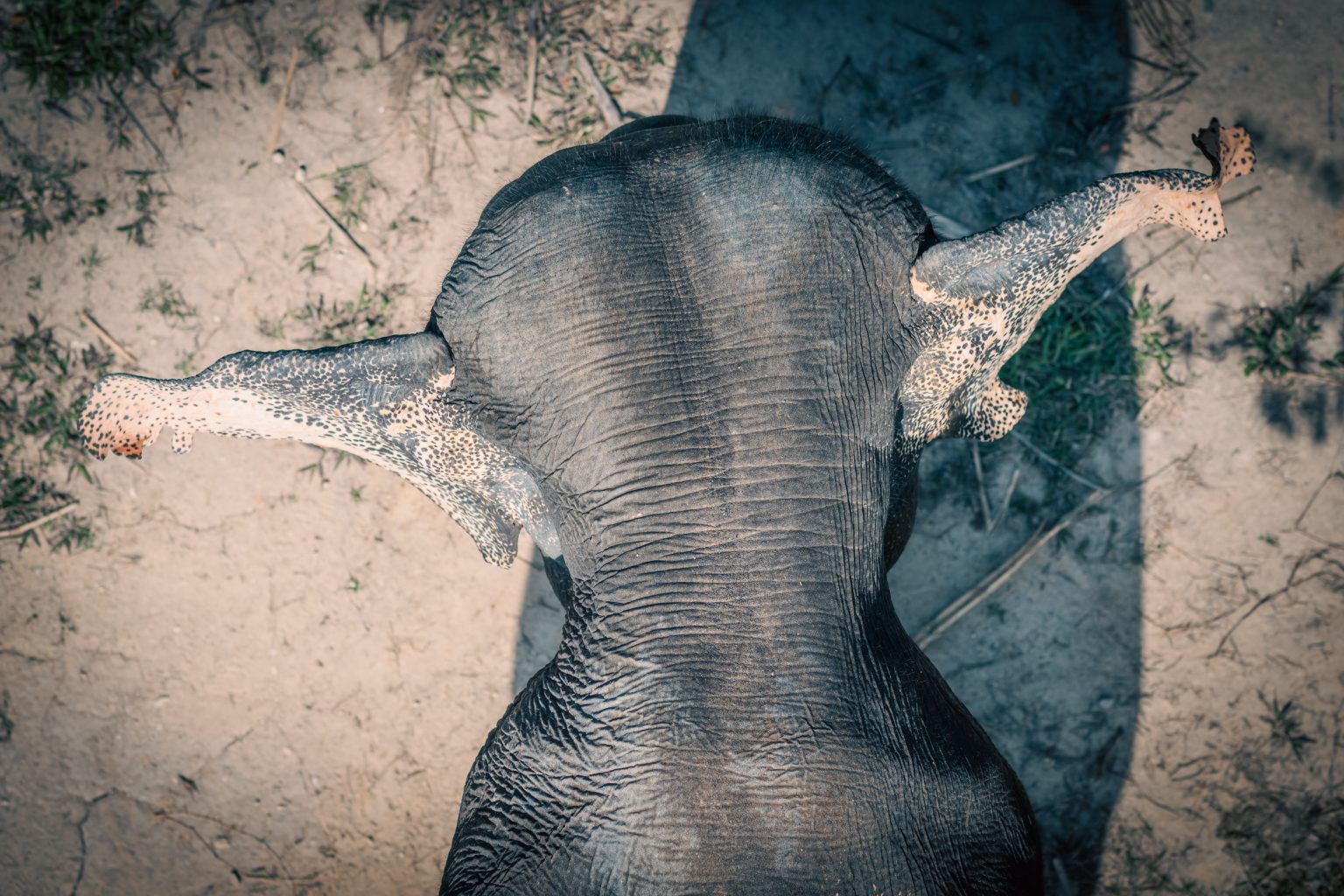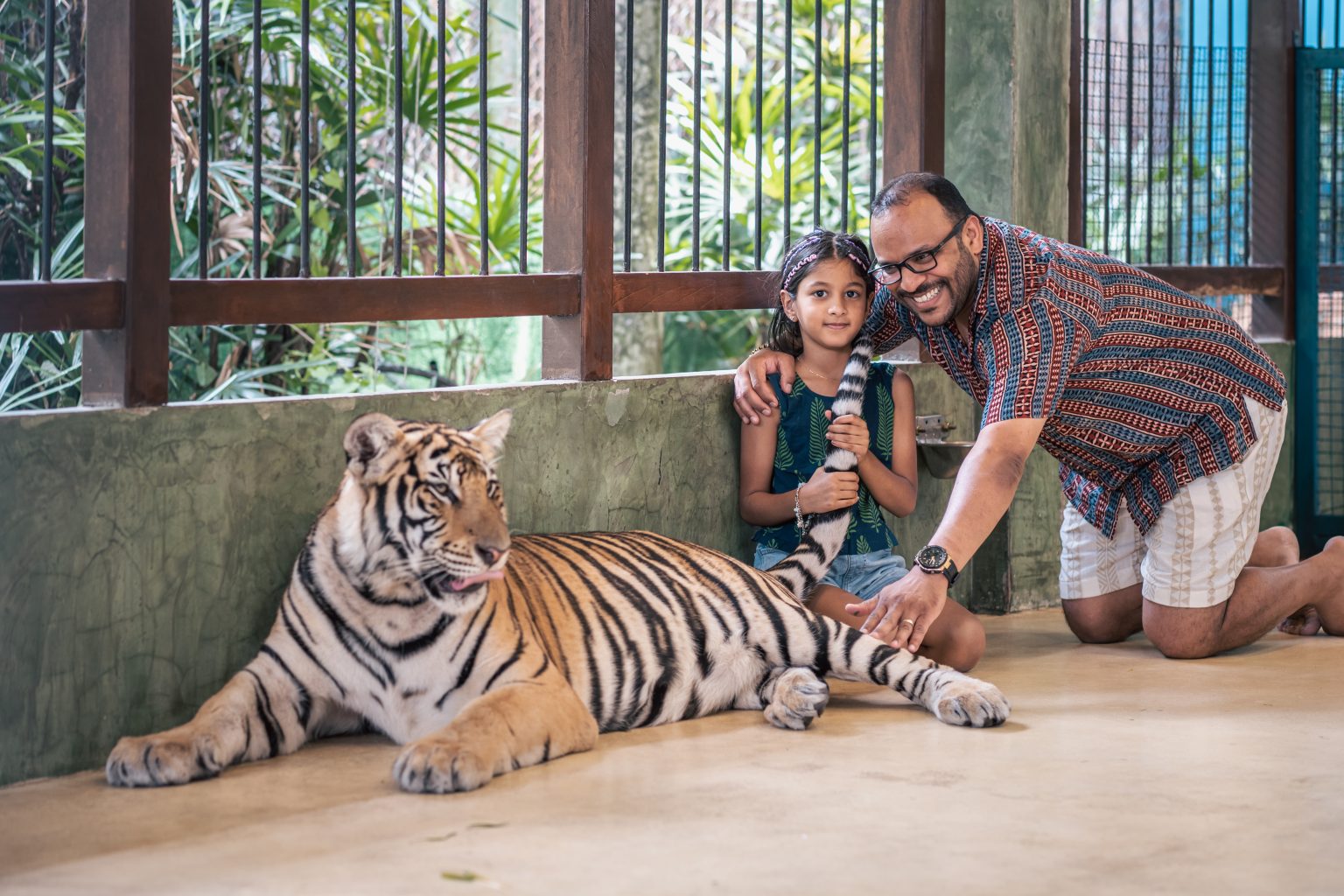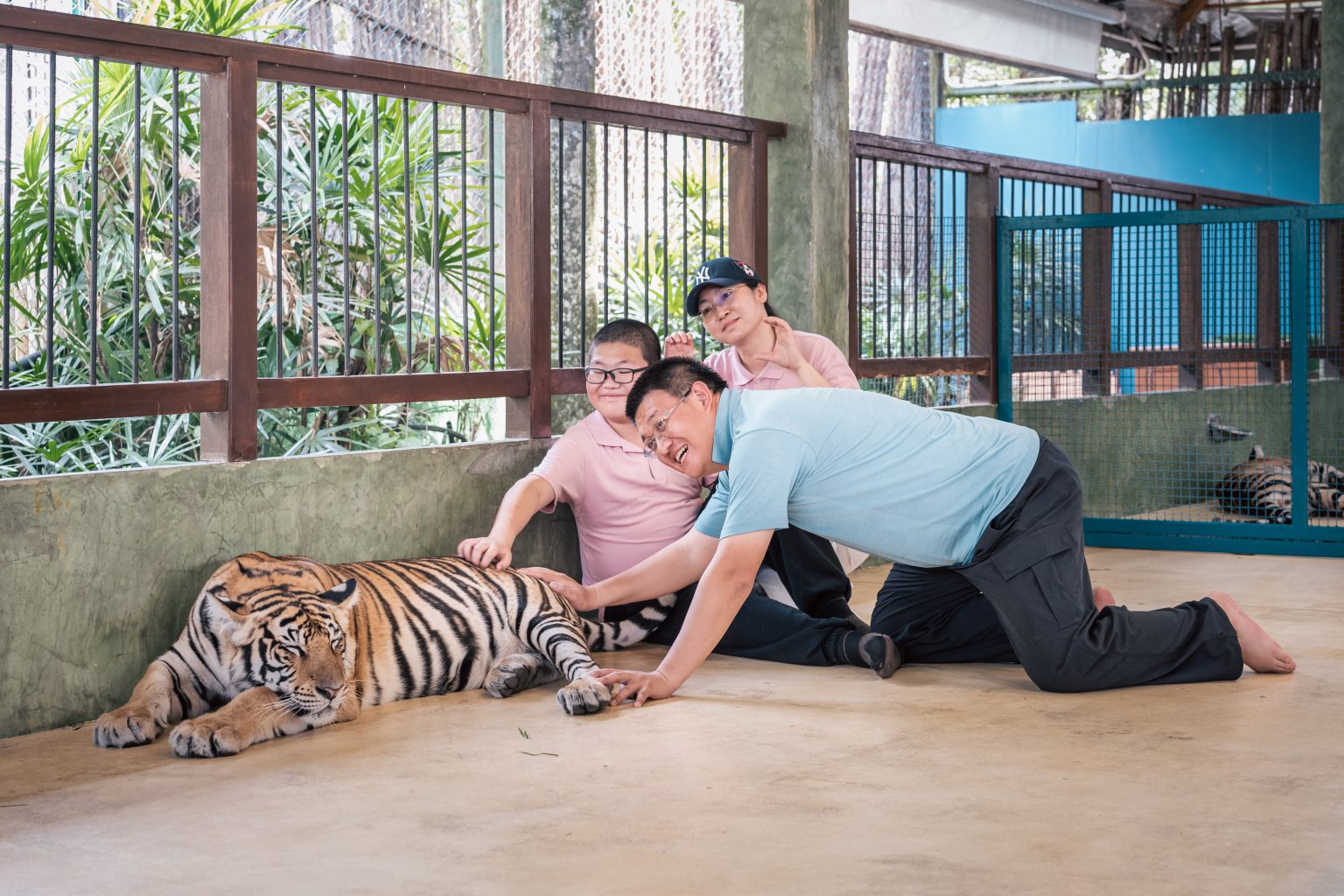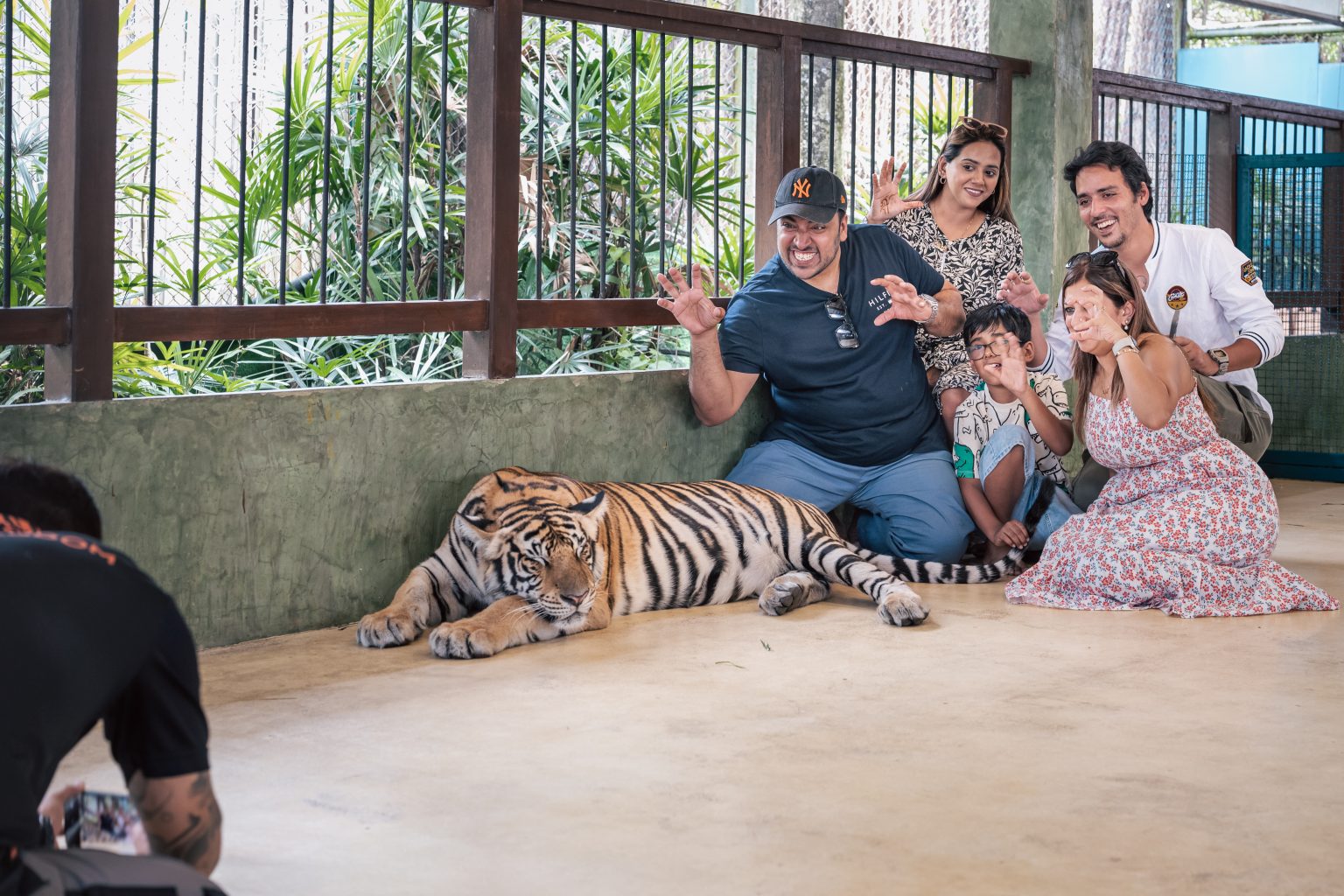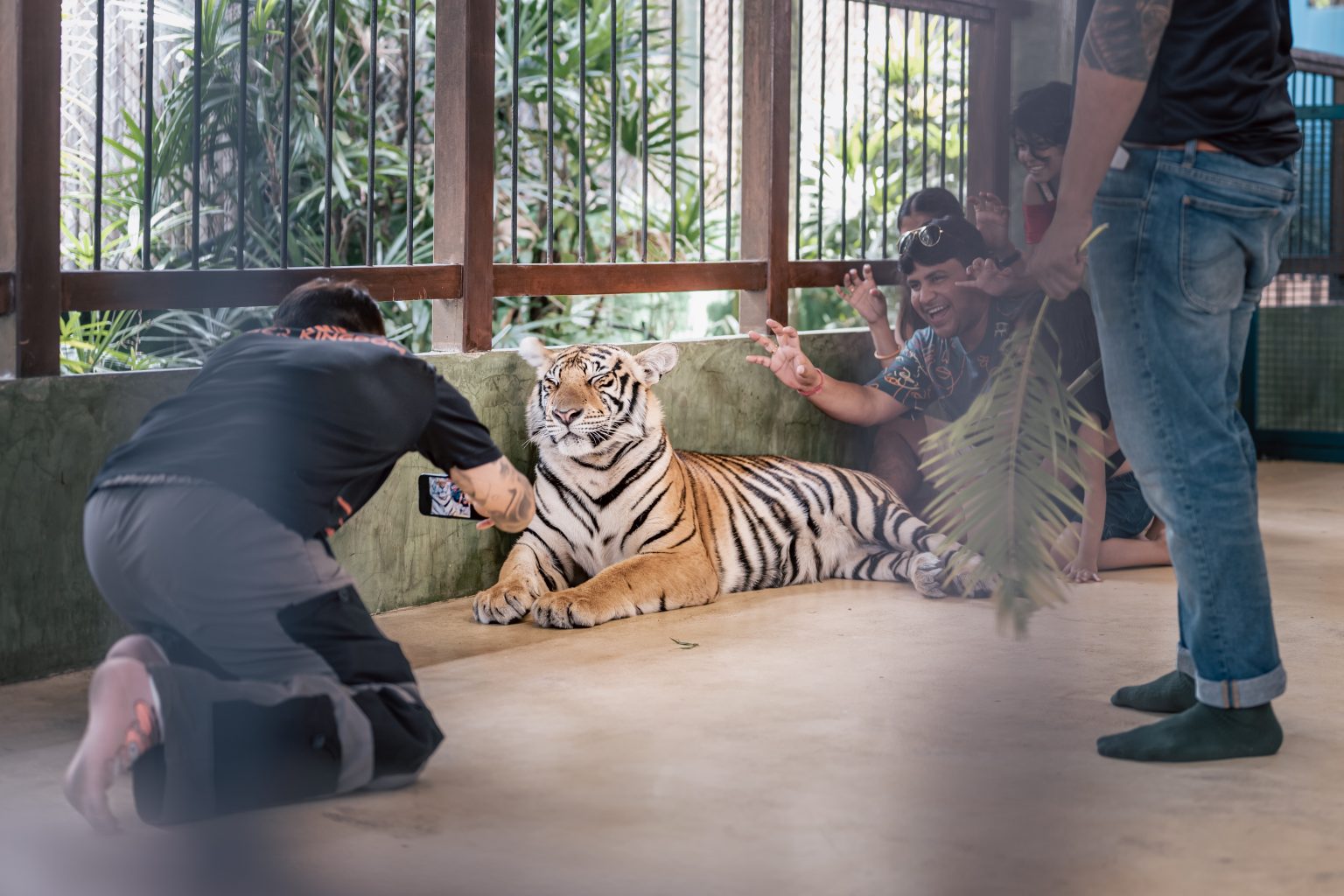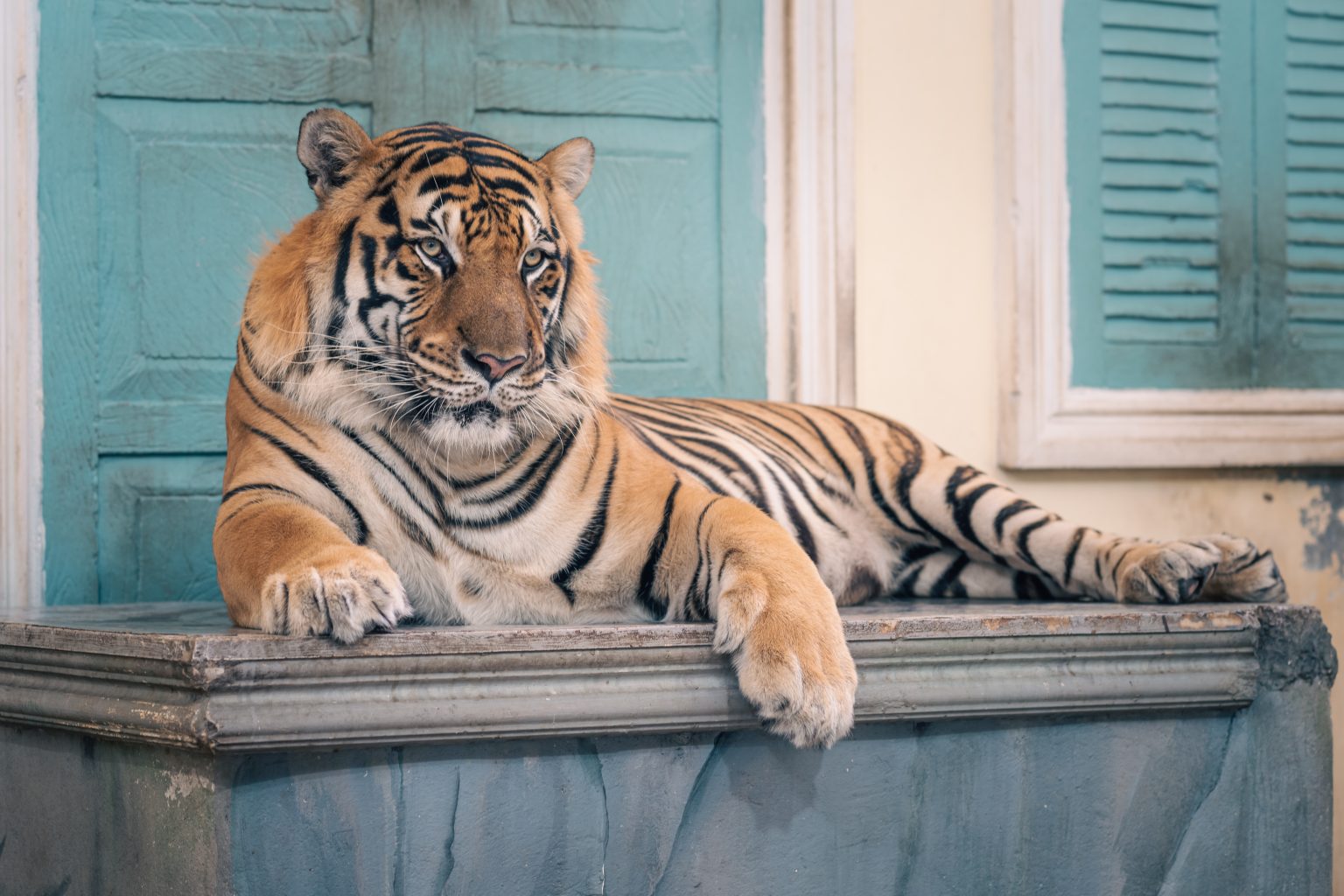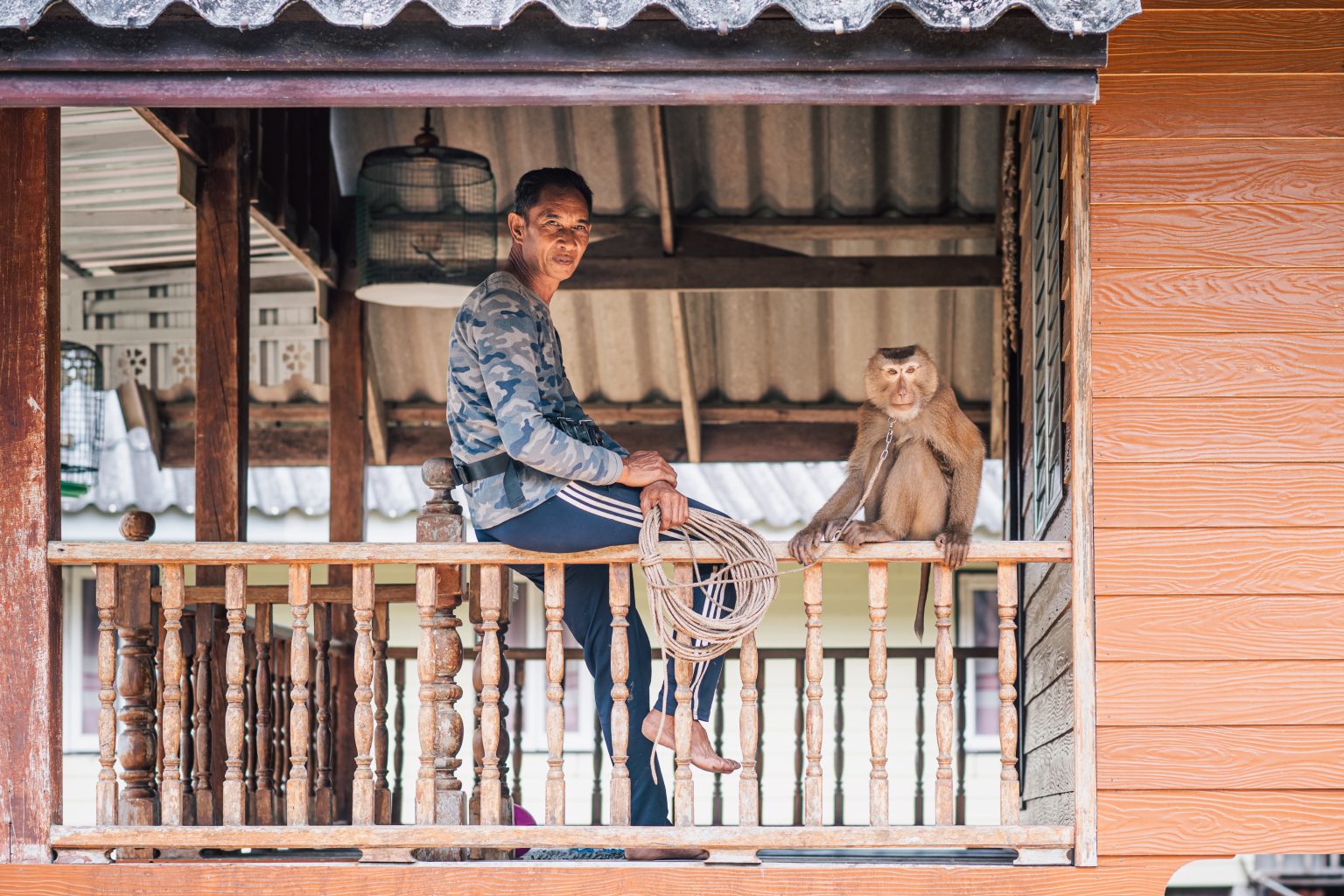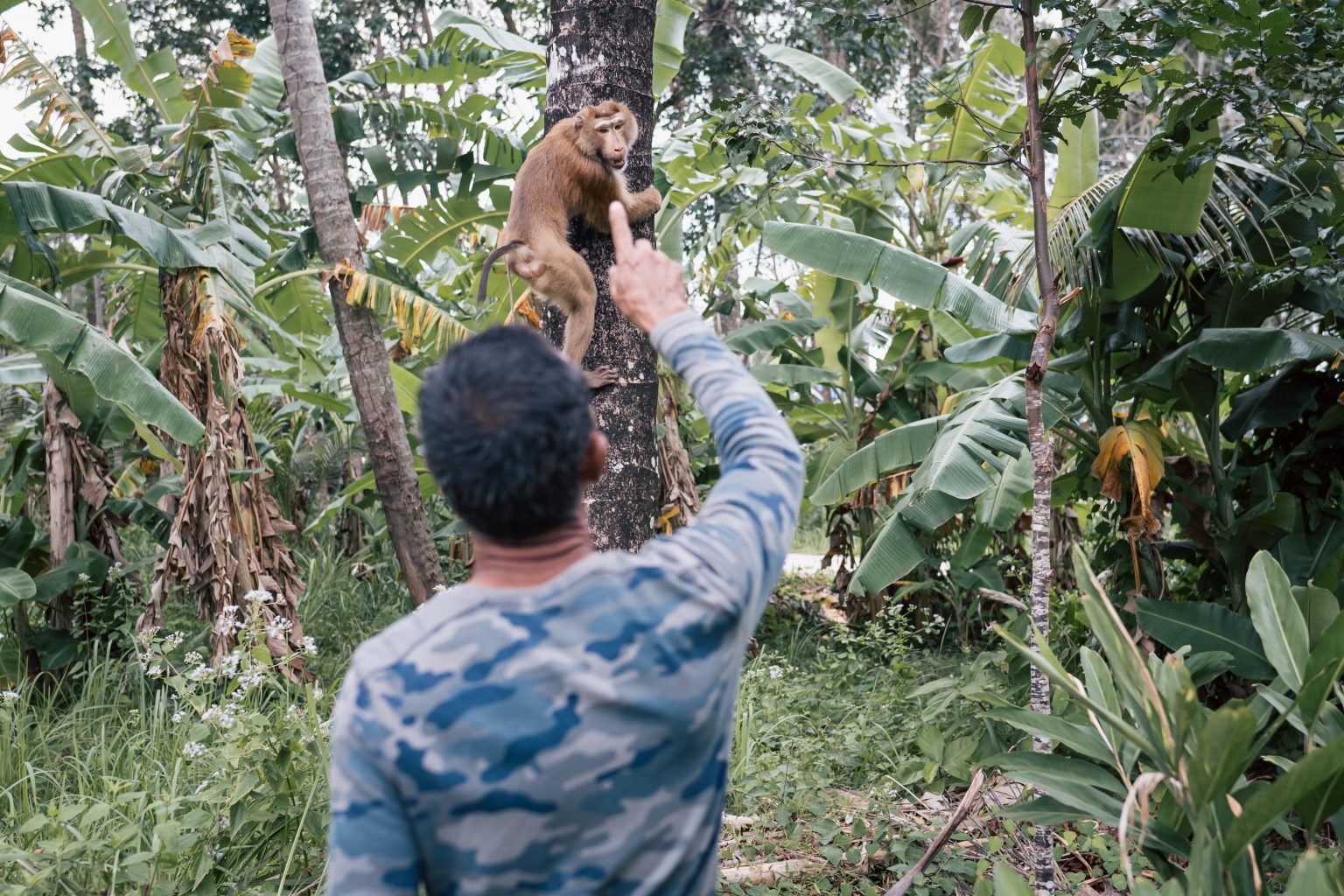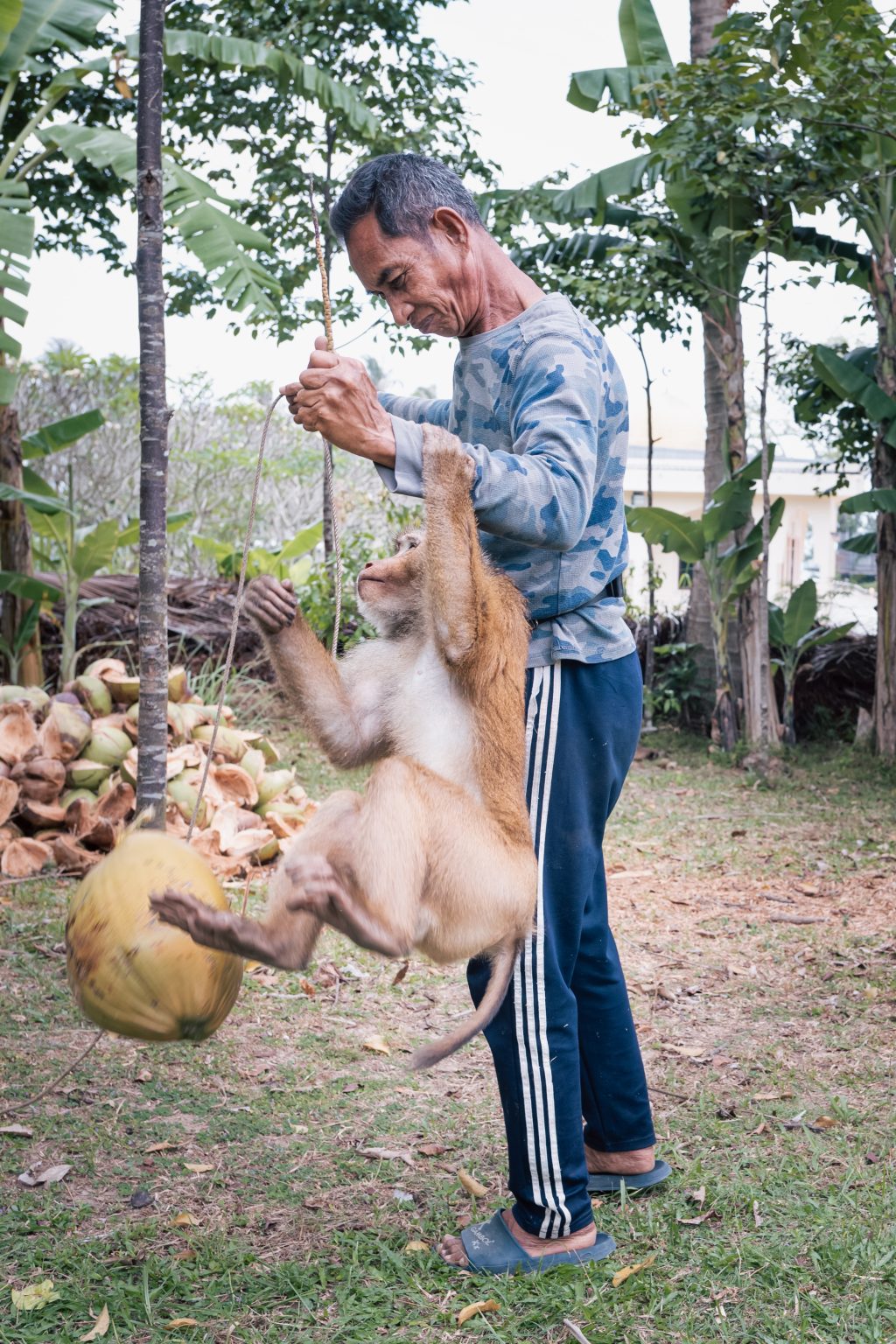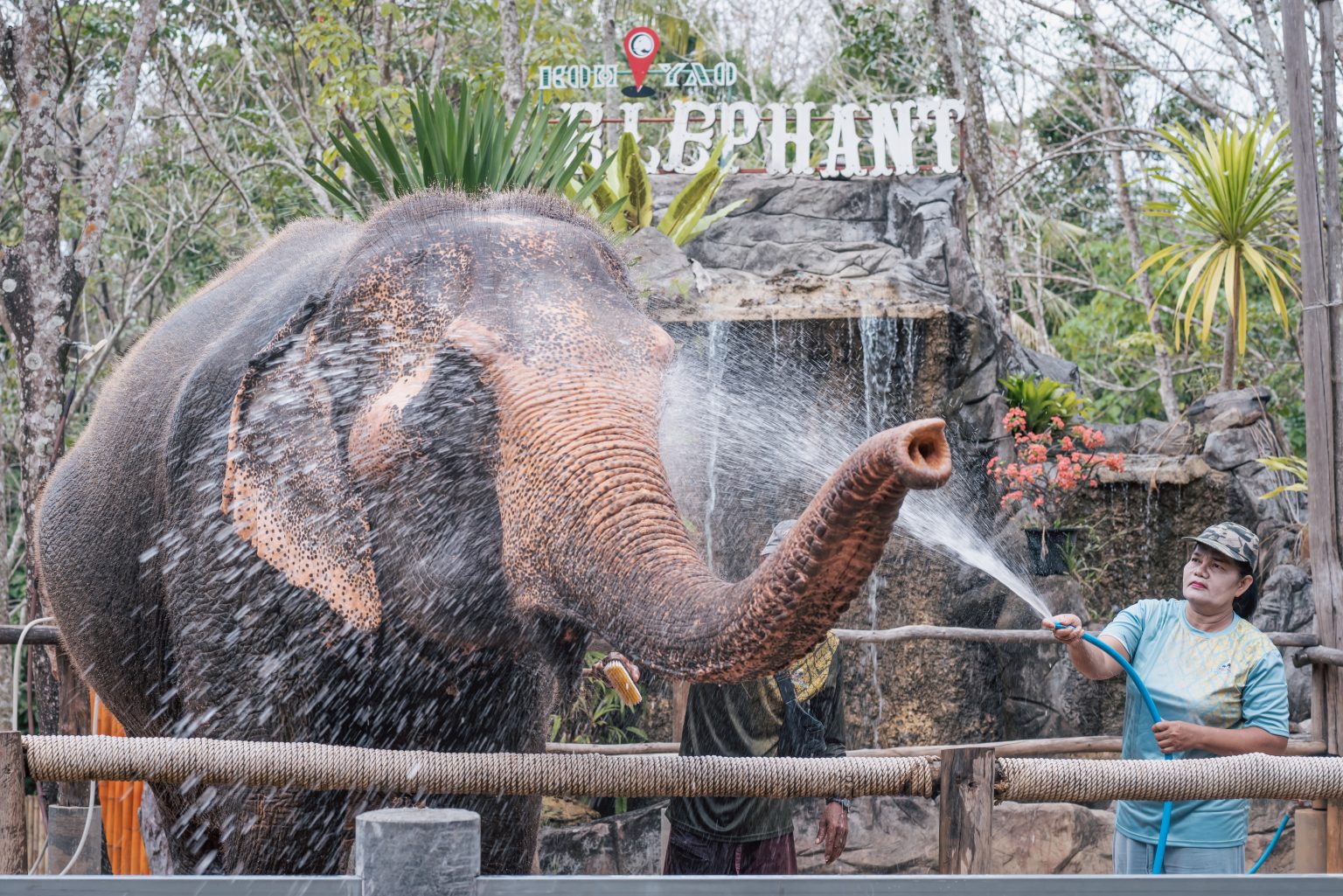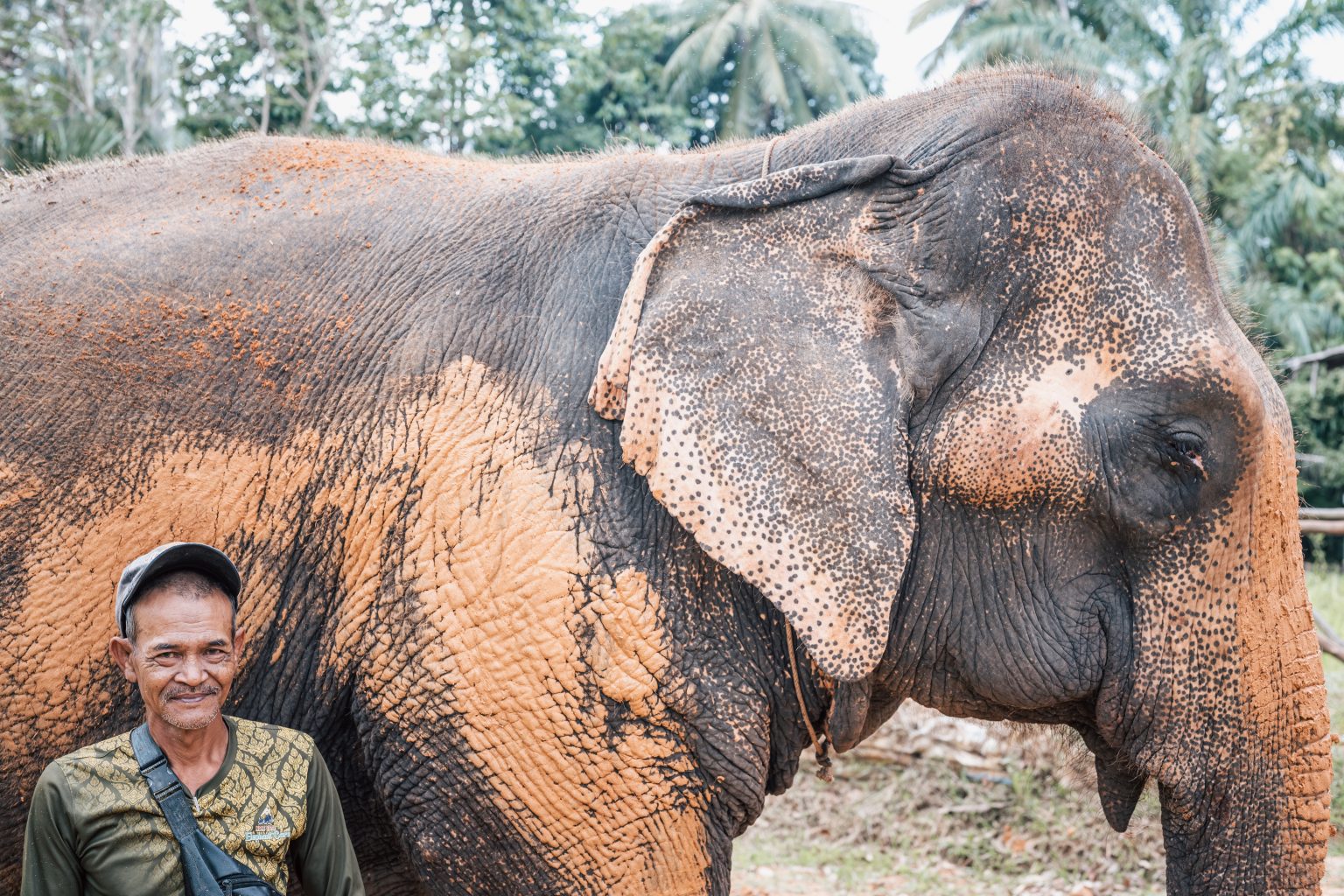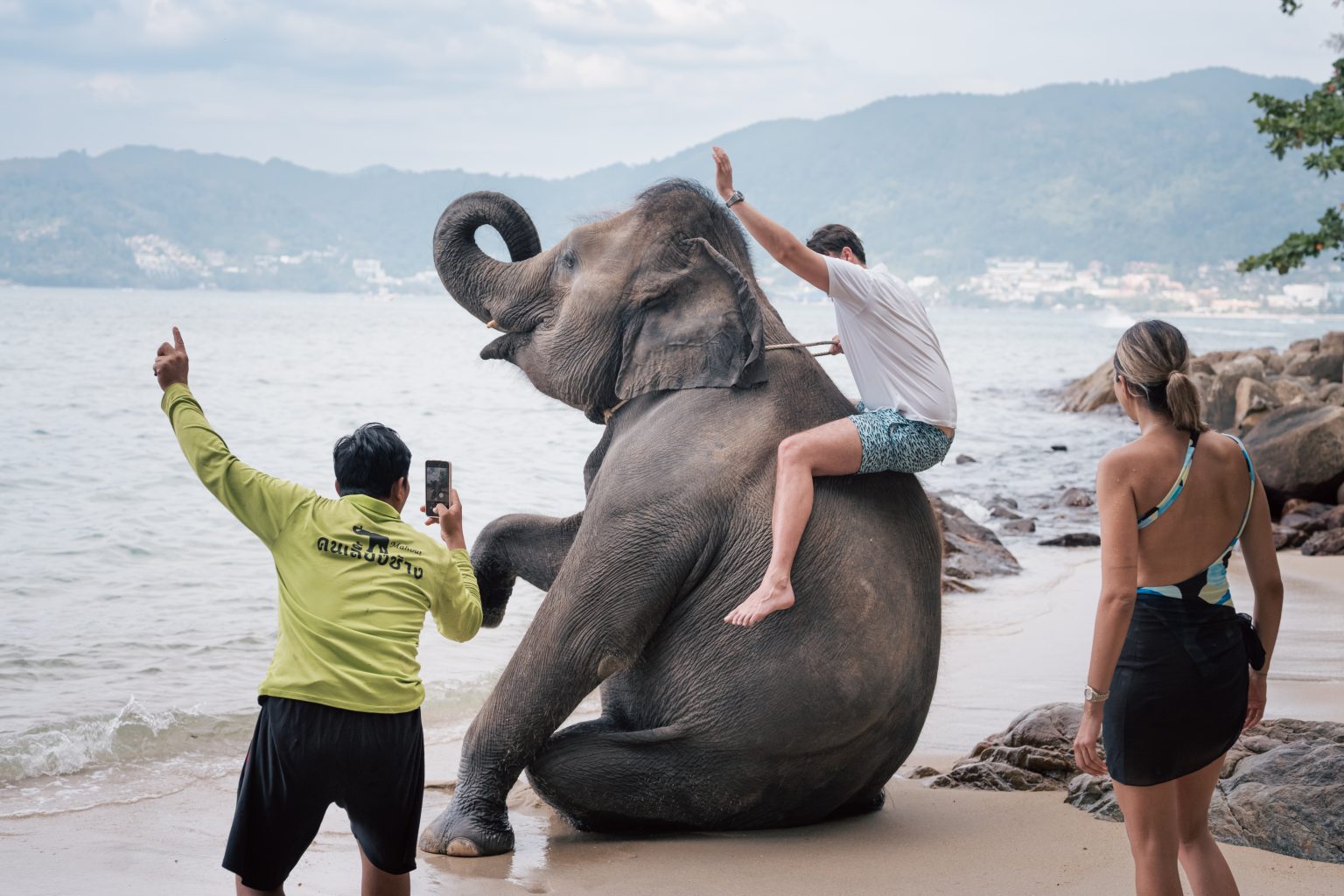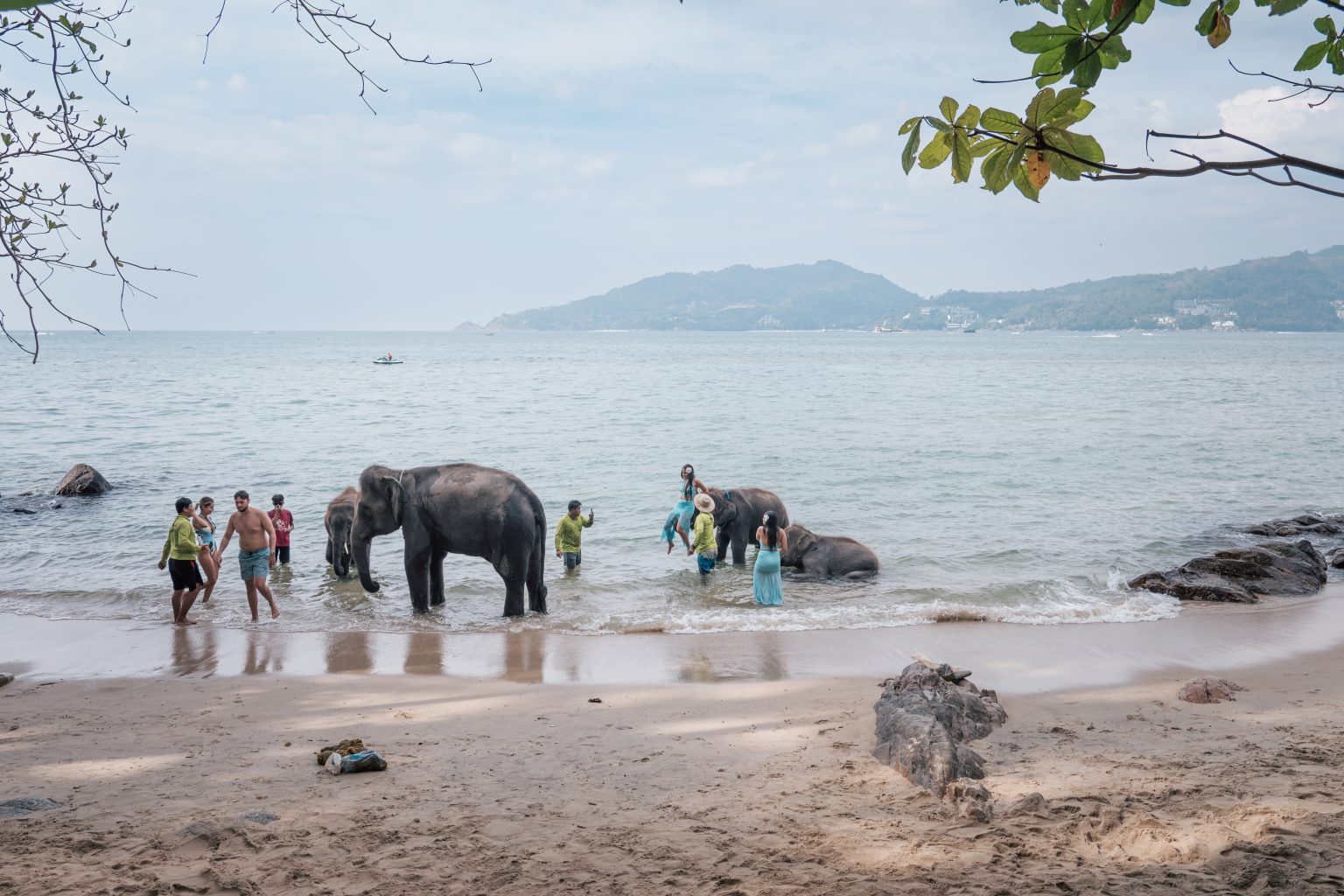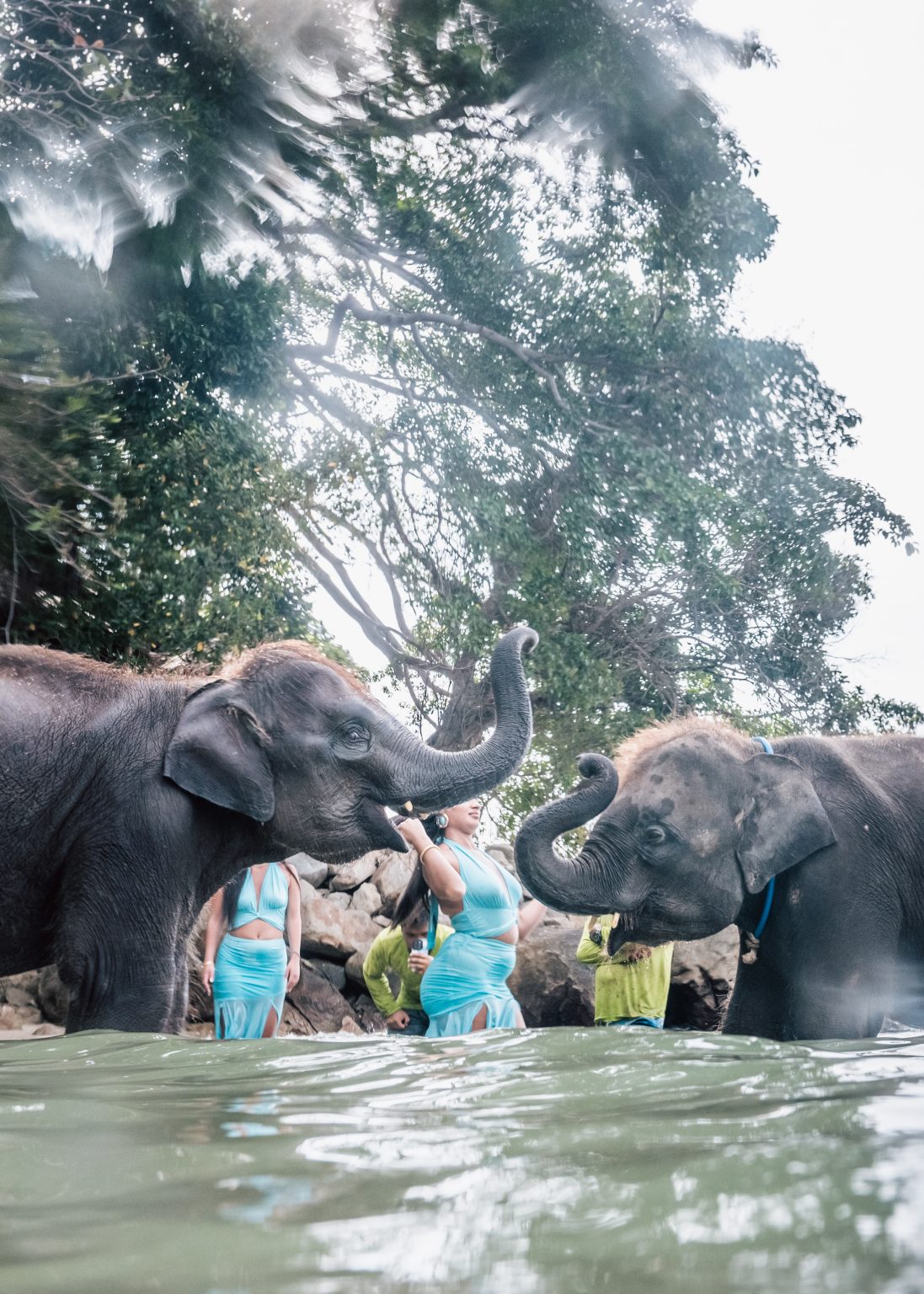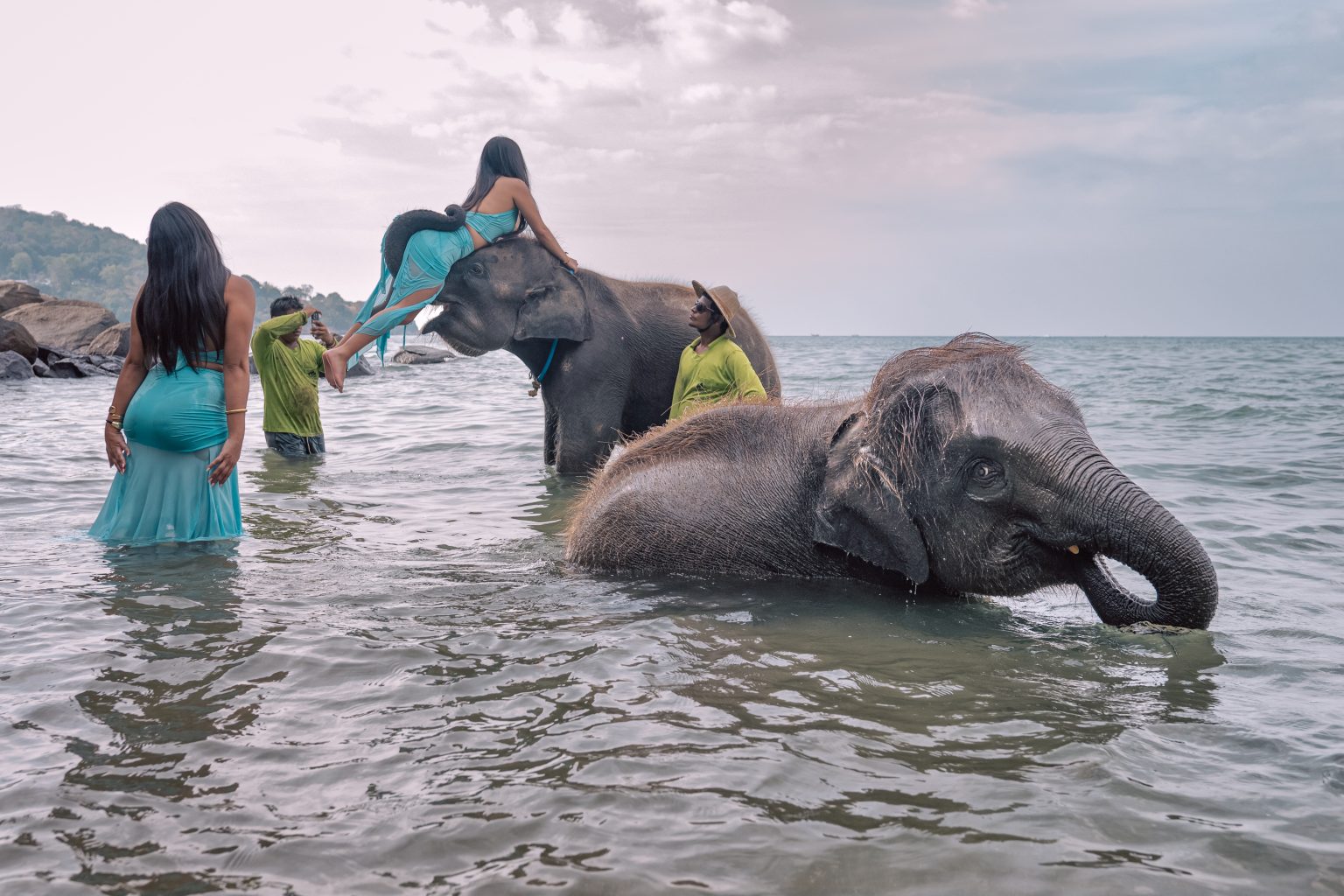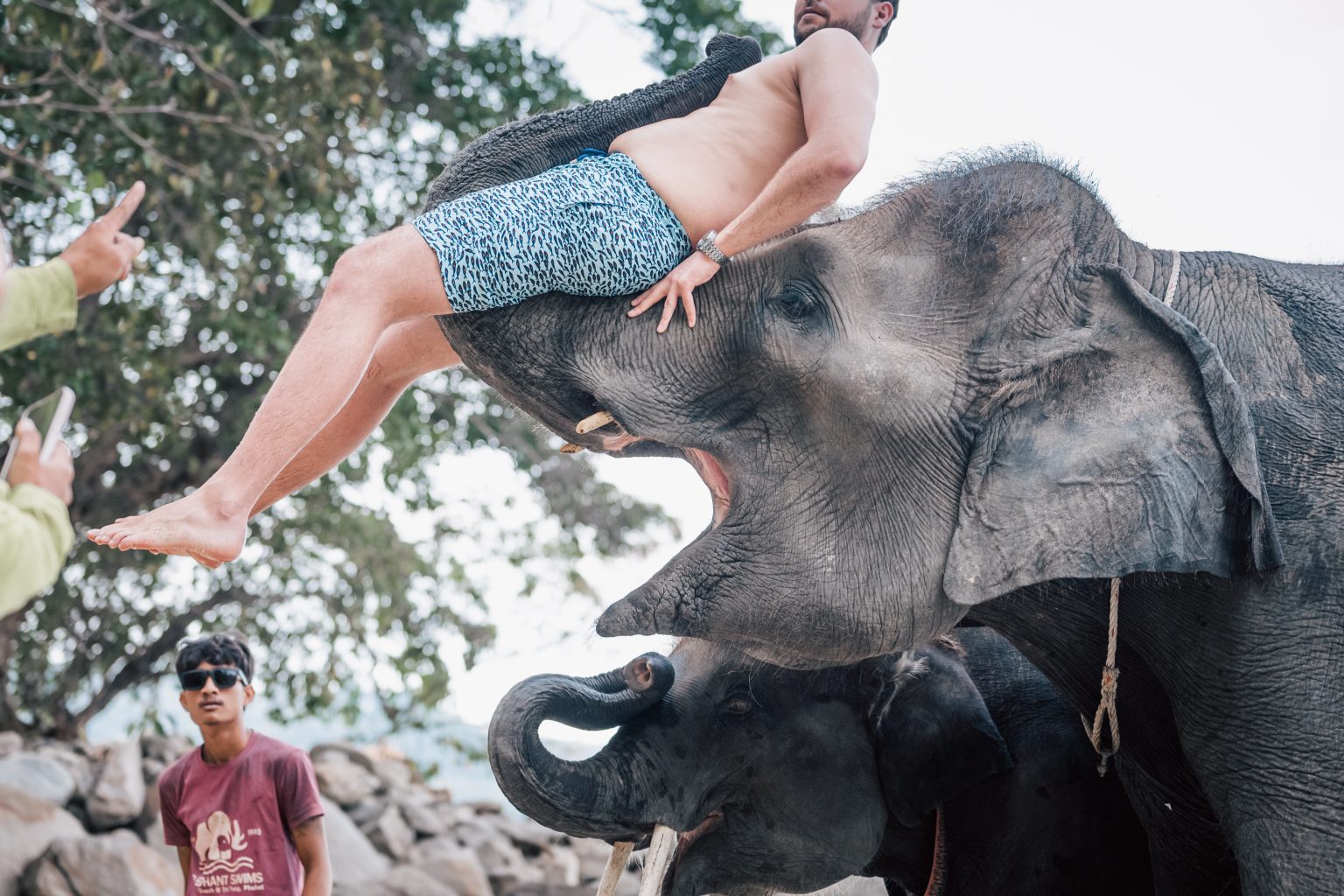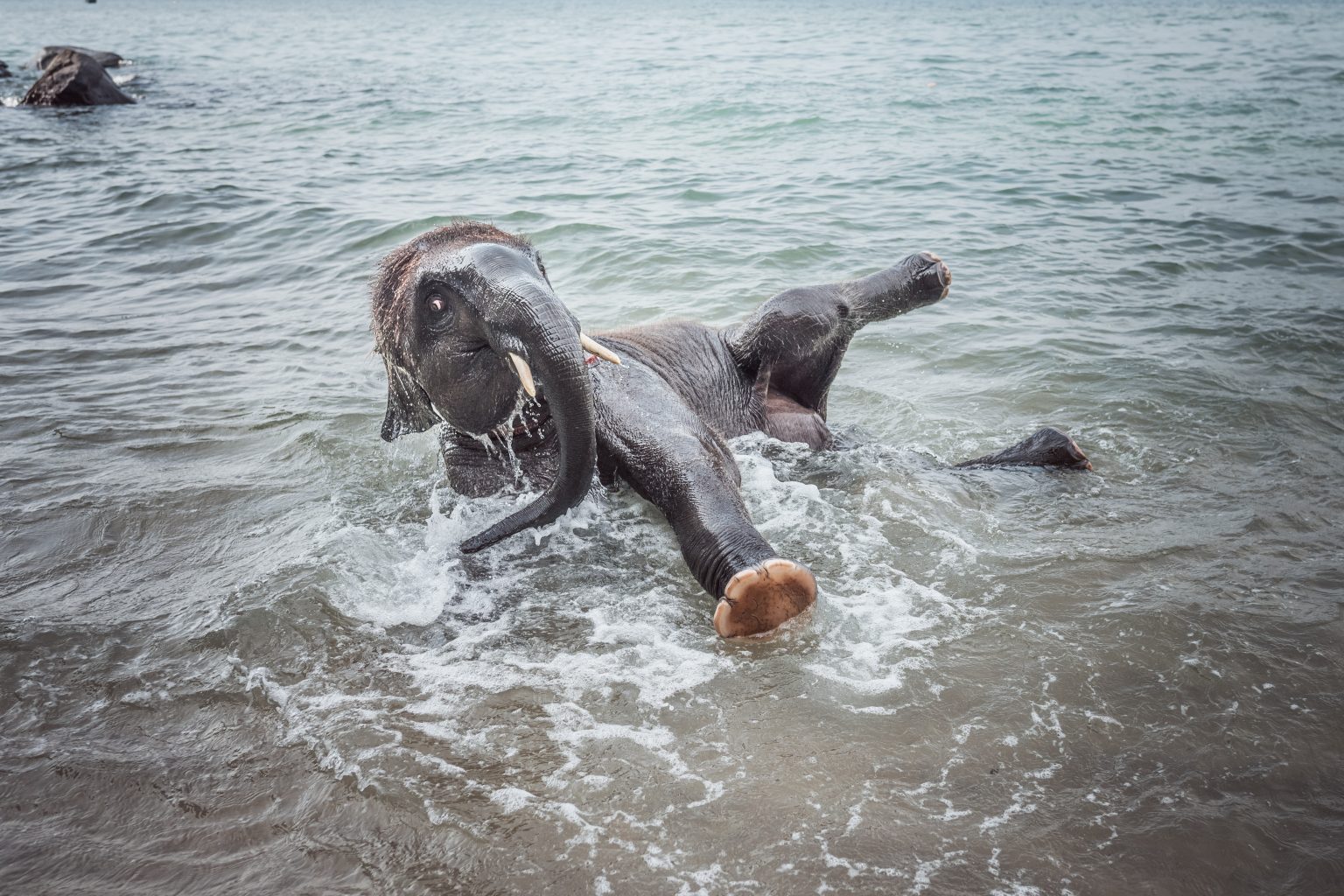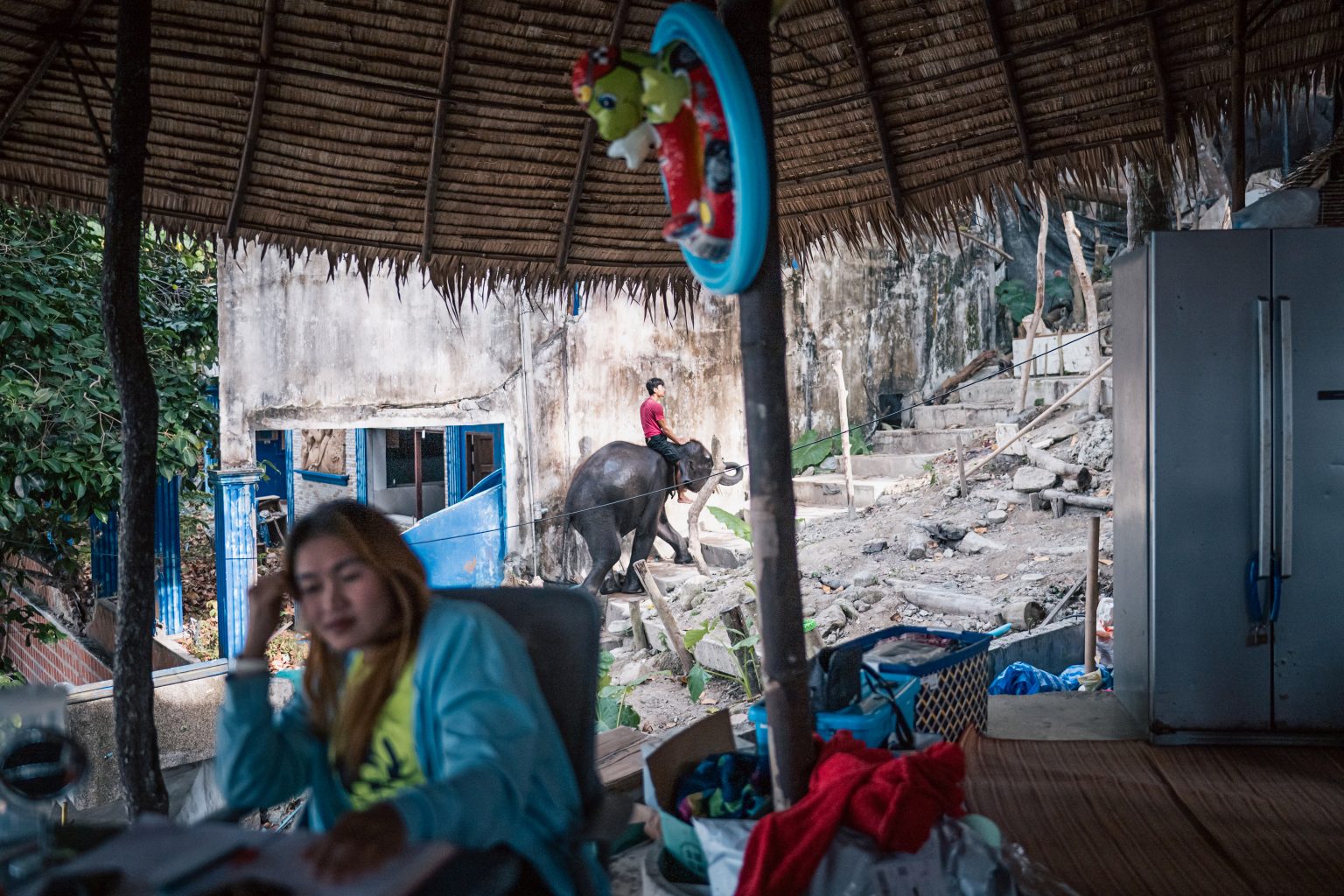Wild Thai
A Spanish tourist died earlier this year after being attacked by an elephant while bathing it at a pachyderm center on Yao Yai Island. In Thailand, washing elephants and cuddling them while immersed in water are popular activities for tourists.
How did we get into this unusual business with wild animals?Historically, Elephants have long cultural and religious significance in Thailand, and this has helped to sustain their population here over the centuries. In addition to considering them sacred, from the 16th century they began to be exploited for their size and strength, first in war and then as a workforce. In the logging industry, elephants were used instead of machinery to transport felled trees through dense jungles. Obviously, this requires the domestication of a large number of elephants, with a “training” process that could last up to 10 years. Trained elephants would typically then work until they reached the age of 60.
In 1989, with the industry in decline, the use of elephants for logging became illegal as tourism began to play an important role in the country’s economy, so thousands of unemployed elephants were relocated to tourist “sanctuaries”.
These animals have been domesticated, but on the one hand their wild nature remains and on the other they have a history of years of abuse and mistreatment behind them. The use of wild animals in tourist activities, in fact, is intrinsically linked to inhumane and cruel practices, necessary to safeguard the people who interact in close contact with them. Tourists might be fooled into thinking that these encounters are natural, especially if the beasts appear calm and tame. But most of these animals were beaten into submission and subjected to cruel treatment to become gentle and willing to be touched, ridden and performed. The tigers of the Tiger Kingdom no longer have anything that resembles their instinct and natural habitat and the elephants that have become private property can be chained, malnourished and mistreated in order to be exploited and become very profitable for their owners. The economic gain generated in Thailand through elephants alone is estimated at more than half a billion dollars a year and an elephant deemed useful for tourism can cost up to 50,000 dollars. This creates a dangerous incentive for both the opening of new businesses and the poaching of wild animals and their illegal trade within Asian countries. Furthermore, the legislation classifies captive elephants as commodities in most of these countries, therefore without any protection or protection. It is important to consciously choose what to support when visiting this country. In fact, there are also virtuous examples, such as the Phuket Elephant Sanctuary, which truly protect this species at risk of extinction, avoiding direct contact with tourists and letting them live in a natural and protected habitat.
Wild animals are not entertainment commodities, as they often want us to believe. On the contrary, they need our protection to stay in the wild where they belong.

